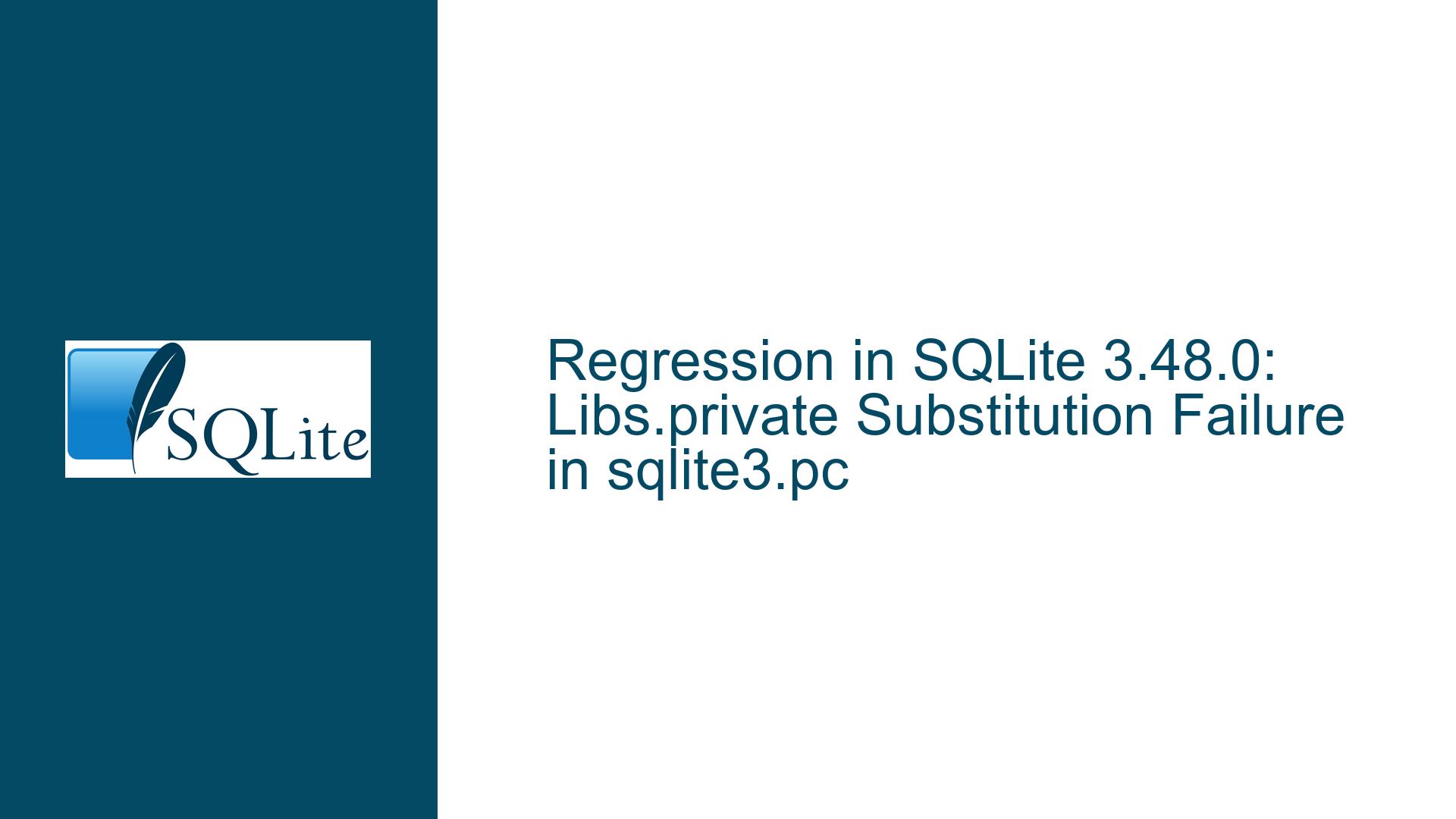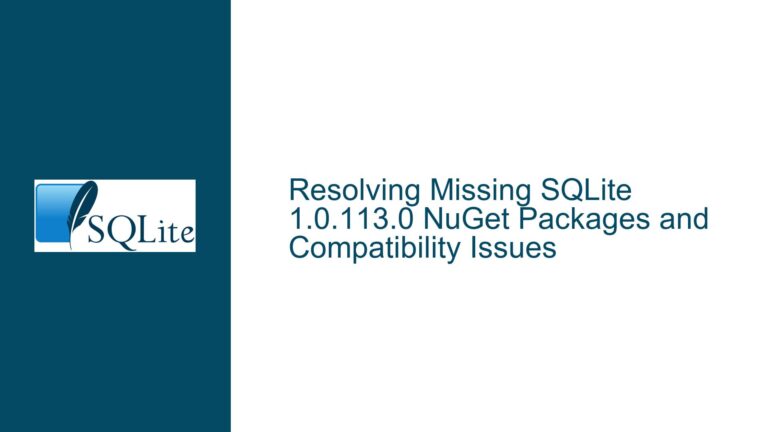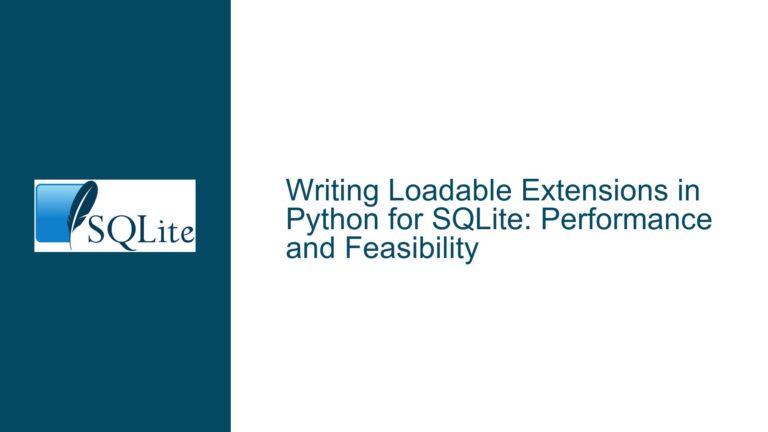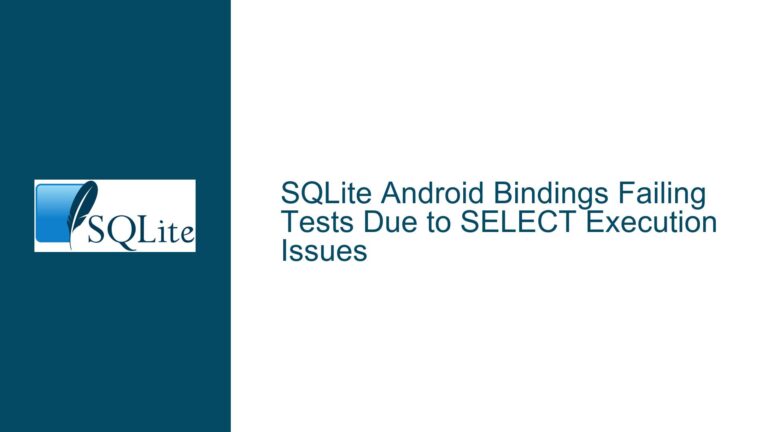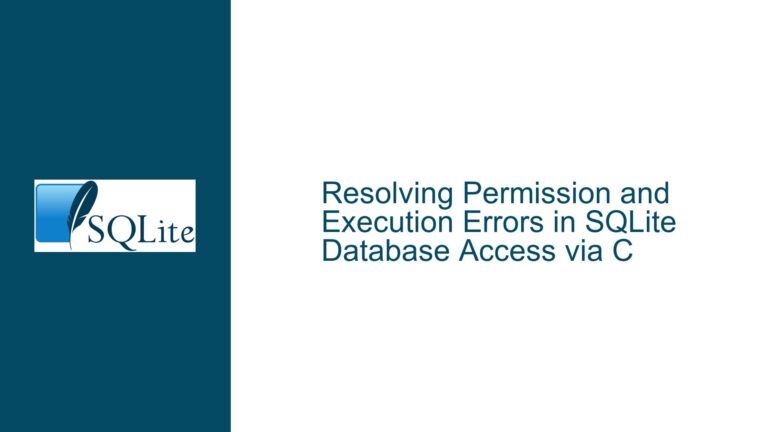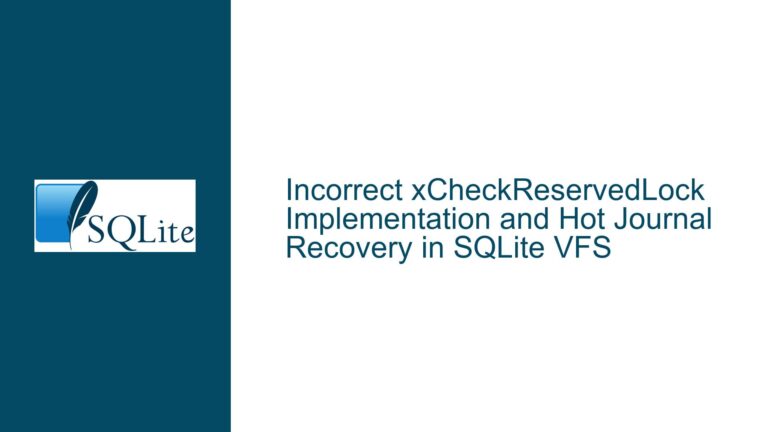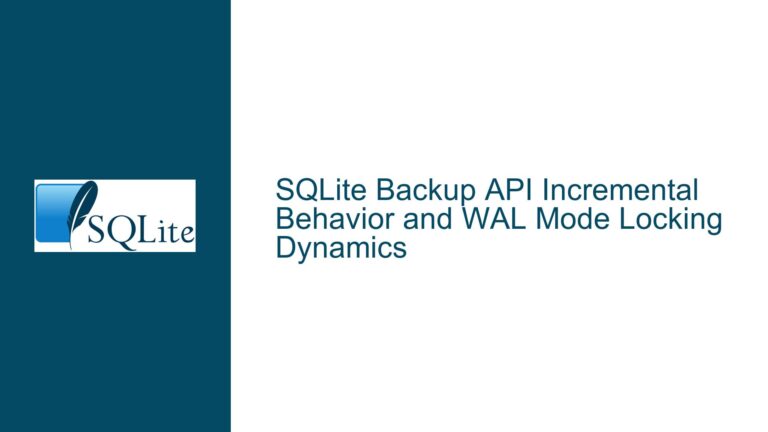Regression in SQLite 3.48.0: Libs.private Substitution Failure in sqlite3.pc
Issue Overview: Libs.private Variable Substitution Failure in sqlite3.pc
The core issue revolves around the failure of variable substitution in the Libs.private field of the sqlite3.pc file during the build process of SQLite version 3.48.0. This file, commonly referred to as a "pkg-config" file, is critical for defining compiler and linker flags required to build and link against SQLite. Specifically, the Libs.private field is intended to list private libraries that are necessary for static linking scenarios. In SQLite 3.48.0, the Libs.private field contains unsubstituted placeholders such as @LDFLAGS_MATH@, @LDFLAGS_ZLIB@, and @LDFLAGS_ICU@, which should have been replaced with actual linker flags during the configuration process.
This regression is particularly problematic for users who rely on static linking, as the unsubstituted placeholders prevent the correct libraries from being linked, leading to build failures or runtime errors. The issue is reproducible on both Linux and macOS environments when building SQLite from the autoconf tarball (sqlite-autoconf-3480000.tar.gz). In contrast, SQLite version 3.47.2 correctly substitutes these placeholders with the appropriate linker flags, such as -lz, -lm, -ldl, and -lpthread.
The failure to substitute these placeholders suggests a breakdown in the build system’s configuration or template processing logic. The sqlite3.pc file is generated from a template file (sqlite3.pc.in), and the substitution process is typically handled by the configure script. The fact that the placeholders remain unsubstituted indicates that either the configure script is not processing the template correctly, or the necessary variables (LDFLAGS_MATH, LDFLAGS_ZLIB, LDFLAGS_ICU) are not being set or passed through as expected.
This issue has significant implications for downstream projects and package maintainers who depend on the sqlite3.pc file to correctly configure their builds. Static linking scenarios, in particular, are affected, as they rely on the Libs.private field to include all necessary dependencies. Without proper substitution, these builds will fail to link against required libraries, leading to unresolved symbols or missing functionality.
Possible Causes: Breakdown in Template Substitution or Variable Propagation
The root cause of the Libs.private substitution failure can be traced to one or more of the following issues in the SQLite build system:
Incorrect or Missing Variable Definitions in the Configure Script
Theconfigurescript is responsible for setting variables such asLDFLAGS_MATH,LDFLAGS_ZLIB, andLDFLAGS_ICUbased on the system’s configuration and available libraries. If these variables are not defined or are incorrectly set, the substitution process will fail, leaving the placeholders unmodified. This could occur due to changes in theconfigure.acorMakefile.infiles that inadvertently removed or altered the logic for setting these variables.Template Processing Logic Failure
Thesqlite3.pcfile is generated from a template (sqlite3.pc.in) using a substitution mechanism that replaces placeholders with their corresponding values. If the template processing logic is broken or misconfigured, the placeholders will not be replaced. This could be due to changes in the build system’s toolchain, such as an incompatible version ofautoconforpkg-config, or a bug in the template processing logic itself.Changes in Build System Dependencies or Environment
The issue could also stem from changes in the build environment or dependencies. For example, if the build system relies on specific versions ofzlib,icu, or other libraries, and these dependencies are not correctly detected or configured, the corresponding linker flags (LDFLAGS_ZLIB,LDFLAGS_ICU) may not be set. This would result in unsubstituted placeholders in theLibs.privatefield.Regression in the Autoconf Tarball Generation Process
The autoconf tarball (sqlite-autoconf-3480000.tar.gz) is generated from the canonical source tree using a series of scripts and tools. If there was a regression in this process, it could result in a tarball that is missing or incorrectly includes certain files or configurations. This could explain why the issue is present in the autoconf tarball but not in the canonical source tree.Incomplete or Incorrect Backporting of Fixes
The discussion mentions that the issue has been resolved in the canonical source tree but not in the autoconf tarball. This suggests that the fix may not have been backported correctly or completely to the tarball generation process. Incomplete backporting could result in a tarball that still exhibits the regression.
Troubleshooting Steps, Solutions & Fixes: Resolving the Libs.private Substitution Failure
To address the Libs.private substitution failure in SQLite 3.48.0, follow these detailed troubleshooting steps and solutions:
Verify the Build Environment and Dependencies
Begin by ensuring that your build environment is correctly configured and that all necessary dependencies are installed. Check for the presence ofzlib,icu, and other required libraries, and verify that their development headers are available. Use the following commands to check for these dependencies:pkg-config --exists zlib && echo "zlib found" || echo "zlib not found" pkg-config --exists icu-uc && echo "icu found" || echo "icu not found"If any dependencies are missing, install them using your system’s package manager. For example:
sudo apt-get install zlib1g-dev libicu-devManually Edit the sqlite3.pc.in Template
As a temporary workaround, you can manually edit thesqlite3.pc.intemplate to replace theLibs.privateline with the appropriate linker flags. Open thesqlite3.pc.infile in a text editor and modify theLibs.privateline as follows:Libs.private: -lz -lm -ldl -lpthreadThis change ensures that the necessary libraries are included in the
Libs.privatefield, regardless of the substitution failure. After making this change, rerun theconfigurescript and verify that thesqlite3.pcfile is generated correctly.Use the Canonical Source Tree
If the issue persists, consider using the canonical source tree instead of the autoconf tarball. The canonical source tree does not exhibit this regression and should generate thesqlite3.pcfile correctly. Download the canonical source tree from the SQLite website and follow the standard build instructions:./configure make sudo make installApply the Upstream Fix
The discussion mentions that the issue has been resolved in the canonical source tree. If you prefer to continue using the autoconf tarball, you can apply the upstream fix manually. Download the latest version of thesqlite3.pc.infile from the canonical source tree and replace the corresponding file in the autoconf tarball. Then, rerun theconfigurescript and verify that thesqlite3.pcfile is generated correctly.Check for Updates and Patches
Monitor the SQLite mailing lists, forums, and GitHub repository for updates and patches related to this issue. The SQLite development team may release a new version of the autoconf tarball that includes the fix. If a new version is released, download it and verify that the issue is resolved.Report the Issue to the SQLite Development Team
If none of the above solutions resolve the issue, consider reporting it to the SQLite development team. Provide a detailed description of the problem, including the steps to reproduce it, the environment in which it occurs, and any error messages or logs. The development team may be able to provide additional guidance or release a patch to address the issue.
By following these troubleshooting steps and solutions, you should be able to resolve the Libs.private substitution failure in SQLite 3.48.0 and ensure that your builds complete successfully. If the issue persists, consider reaching out to the SQLite community for further assistance.
